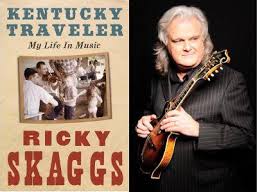It seems obvious, but it's a good reminder that worship is why we were created. It's fitting, on this beautiful Monday morning, to start our week with this statement from the Westminster Shorter Catechism :
Man’s chief end is to glorify God, and to enjoy him forever.
Every human through time has had this in common—though many today don't realize it yet, or have walked away from God, knowing this Truth full well.
All of Life
Worship isn't limited to singing or the song set before the sermon. Rather as an act of continual prayer, worship is meant to fill each moment of every day (1 Thessalonians 5:17). Our bodies were intended to be temples of worship (1 Corinthians 6:19-20) and, according to Scripture, every believer is a priest, whose duty is to bring sacrifices to God (1 Peter 2:9). We offer ourselves to God in worship—living sacrifices, holy and pleasing to Him (Romans 12:1-2).
The priests of the Old Testament took turns serving in the Temple, facilitating worship 24-hours a day. The role of the priest in the Old Testament was to minister to God on behalf of the people and minister to the people on the behalf of God. Now, even in this modern post-New Testament era of worship, we must, like the Temple priests, serve God and worship Him on a continual basis. So, worship is meant to be an around-the-clock exercise. During our day, as we go about our business, we offer our joys, our fears, our jobs, our friends, our family, our wills, and our future to Him as we worship.
The Worship of God is Virtue (our highest purpose in life)
Virtue is not only equated with moral excellence, goodness and righteousness, but with purpose. In classic philosophical terms (teleology) it means: to fulfill the purpose for which something was created. In other words:
—The virtue of a hammer is to drive or extract nails
—The virtue of a guitar is to create music
—The virtue of lawn mower is to cut grass
If we misuse something—an acoustic guitar to drive a stake in the ground, for instance—the guitar will most likely end up in splinters, and the stake will probably not have budged an inch. Living in sin—deliberate disobedience to the known will of God—is a misuse of our lives, and it's the direct opposite of virtue. Sin leaves us empty, frustrated and bereft of the good things God intends for us. Walking away from God leaves us broken and splintered like the acoustic guitar. But instead, if we invest our lives in the purposes of God, walking with Him and exalting Him daily, we are changed, and the world around us will be affected.
Since we were created to exalt God and fellowship with Him, worship is the ultimate virtue for humanity. Therefore in worship, we are fulfilling our true purpose—mentally, spiritually and physically.
_______________________________________
This is an excerpt from my new book, Worship Foundry, to be released on WestBow Press/ Thomas Nelson by the end of the year. Please check back for updates and come back often to read my blog! Blessings to all!



